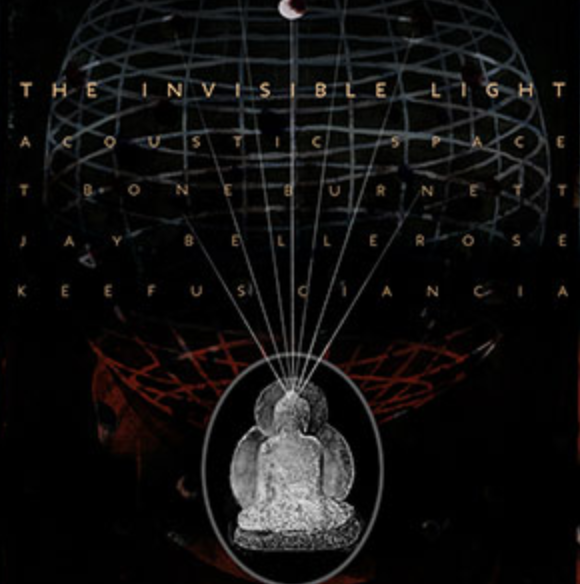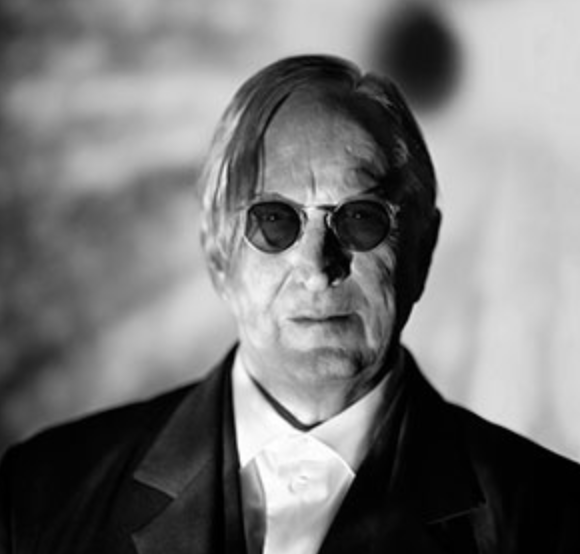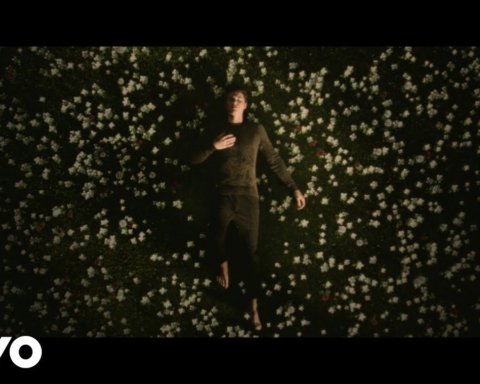T Bone Burnett is one of American music’s great ancients: a man with a map of the world on the back of his guitar and a life’s worth of stories to tell. Having worked on soundtracks and collaborations with an almost unparalleled breadth of musicians, each song comes with a backstory heavy with experience.
Dark, heavy, and incredibly relevant, his latest record, titled The Invisible Light: Acoustic Space, is vastly different from Burnett’s signature style. While he’s been traditionally popular for his Americana, roots rock, and country music sensibilities, his newest work appears to be a refreshing departure, in collaboration with percussionist Jay Bellerose and composer Keefus Ciancia.

The Invisible Light includes elements that you might have expected Burnett never to dabble in – electronic backings, beat poetry, and spoken word – and we’ve got to admit, he’s a natural at it. The album has been on his mind for years now, and it’s the first in a trilogy that seeks to explore the impact of technology on humanity – more specifically, the darker side of its influence.
Interestingly, Burnett’s inspiration for this album stems from a nightmare he had years ago, which began to stir again in 2008. Astonishingly, that moment saw the beginnings of The Invisible Light – as a 5,000-line long poem.
He begins the album with a mention of the devil in the very first track, “High John.” Next up, “A Man Without a Country” gives a swirling ballad, mourning for mankind as it is today. With splintered sonics and sweeping noises accompanying the vocals, this track sets the stage for what comes later, in “To Beat the Devil.” It’s a percussive storm that does great justice to its message.
Next on the list is “Anti Cyclone,” and it’s here that there’s a shift in the vibe, from a roundabout sobriety to straightforward despondence. It begins slowly, sort of like a tango, and transforms into a whirling mix of words, music, and above all, emotions. “If you tell people the things they already believe/They will believe you/It doesn’t matter what you say,” growls Burnett, and it feels like the sort of sentiment that elders have the right to offer baldly, earning it with a lifetime of looking.
“The Secrets in Their Eyes” further explores the state of our confused opinions: “Our brains are washed/But they’re not clean/We dream other people’s dreams.” It may sting, but it rings true. This vibe runs throughout the album, with Burnett exploring the world we’re living in and striking a deeper chord as well.
As a one-off album, The Invisible Light would risk miserablism and self-importance; as the first part of a trilogy, it feels more nuanced, and a fascinating first part of a greater whole. All the while, listening to these songs, you can’t help but think – It’s hard, but it’s true, and yet the album’s penultimate track, “Being There,” takes a hopeful turn with words that speak of a future. All in all, The Invisible Light is just what it’s named after. At first listen, it may seem to be a gloomy, despondent piece. But the unseen meaning behind it is a message of hope. The first step to fixing what’s wrong with the world is to take note of what’s wrong. And in his album, Burnett does that with a singular grace that is his, and his alone.









